SOME OF OUR SPEAKERS
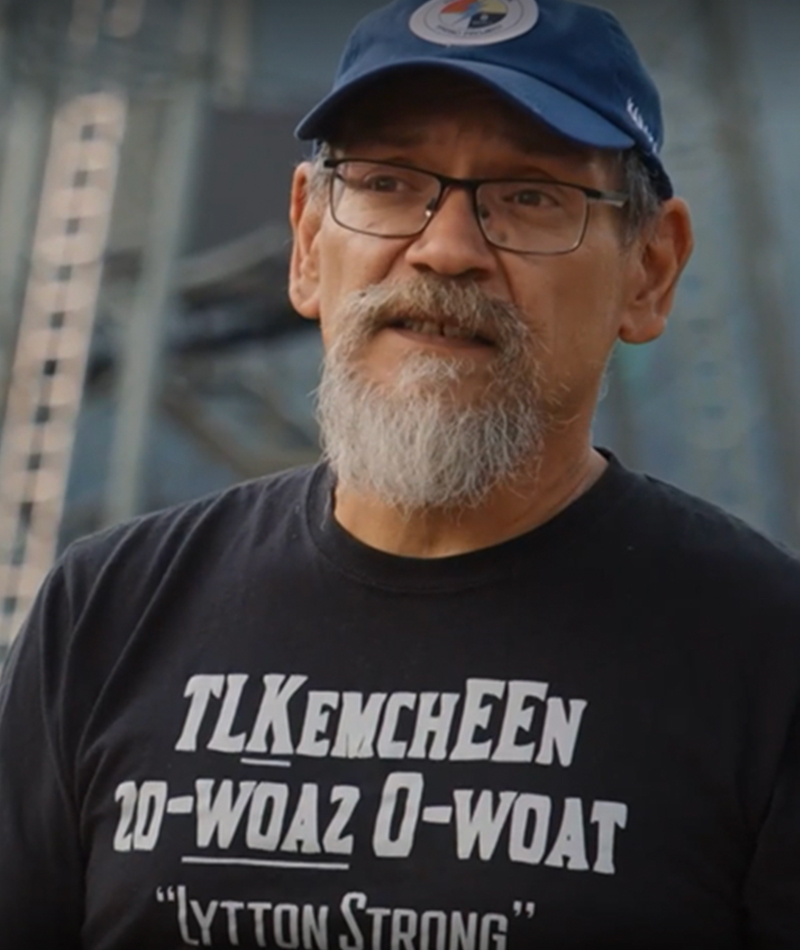
Patrick Mitchell
Patrick Michell is a member of the Nlaka’pamux Nation and a Retired Chief of the Kanaka Bar Indian Band. He lives in Kanaka Bar, 14 km south of Lytton, BC (Canada’s hotspot). Patrick has dedicated his career to re-establishing foundational sustainability and reducing the impacts of climate change in his community and beyond. His tireless and common-sense advocacy is well known.
Since 1978, aware of the growing effects of climate change on their traditional territory, Patrick and his community have completed projects to rebuild sustainable community foundations in water, food, and shelter – along with support systems like storage, energy, communication, transportation and waste management. These initiatives prepare Kanaka Bar and its residents for the environment and economy of today and more importantly for tomorrow.
On June 30, 2021, Patrick and his family lost their intergenerational home in the Lytton fire and have lived in response mode since. That autumn, an atmospheric river wiped out all but one road in the region, and in Dec. they experienced a record-breaking minus 32-degree temperature along with a snowfall event more than 4 feet. Regional wildfires have since come every year since 2021 with more evacuations, additional homes lost and power outages, just to name a few of the many impacts.
Patrick retired as Chief of Kanaka Bar in 2022 to help his family recover from the multiple compounding losses. In Nov. 2023 Patrick joined the Lytton First Nation as a Rebuild Director with community and regional fire resiliency and resistance as a priority for all involved.
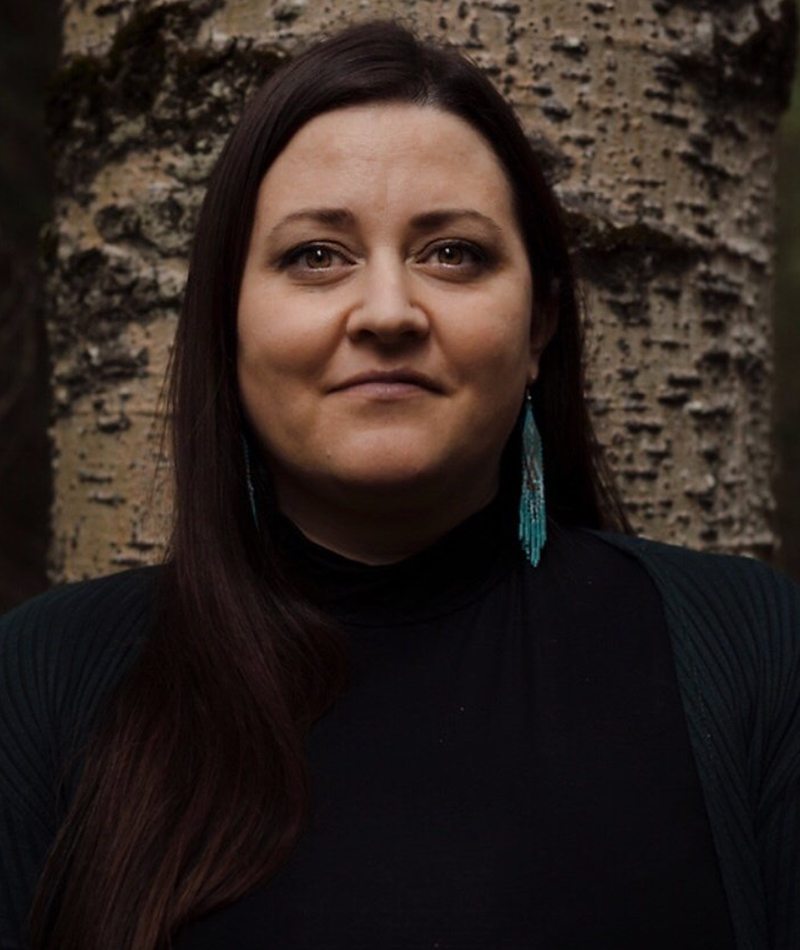
Amy Cardinal Christianson – presenting remotely
Amy Cardinal Christianson is Métis and grew up in Treaty 8 territory (northern Alberta, Canada). Her Métis relations are the Cardinal (Peeaysis Band) and Laboucane (Laboucane Settlement) families. She currently lives near Rocky Mountain House in Treaty 6 (central Alberta).
Amy was formerly a Research Scientist with the Canadian Forest Service (Natural Resources Canada) and an Indigenous Fire Specialist in the National Fire Management Division of Parks Canada.
Amy works with Indigenous Nations across Canada on fire stewardship practices like cultural burning and collaborates with Indigenous peoples from around the world on decolonising land management. She also studies wildfire evacuations and advocates for Indigenous wildland firefighters.
She is the co-author of the books, First Nations Wildfire Evacuations: A guide for communities and external agencies and Blazing the Trail: Celebrating Indigenous Fire Stewardship. Amy also cohosts the Good Fire podcast, which looks at Indigenous fire use around the world. She serves on the steering committee of the Thunderbird Collective, the board of the International Association of Wildland Fire and the international research advisory panel with Natural Hazards Research Australia.
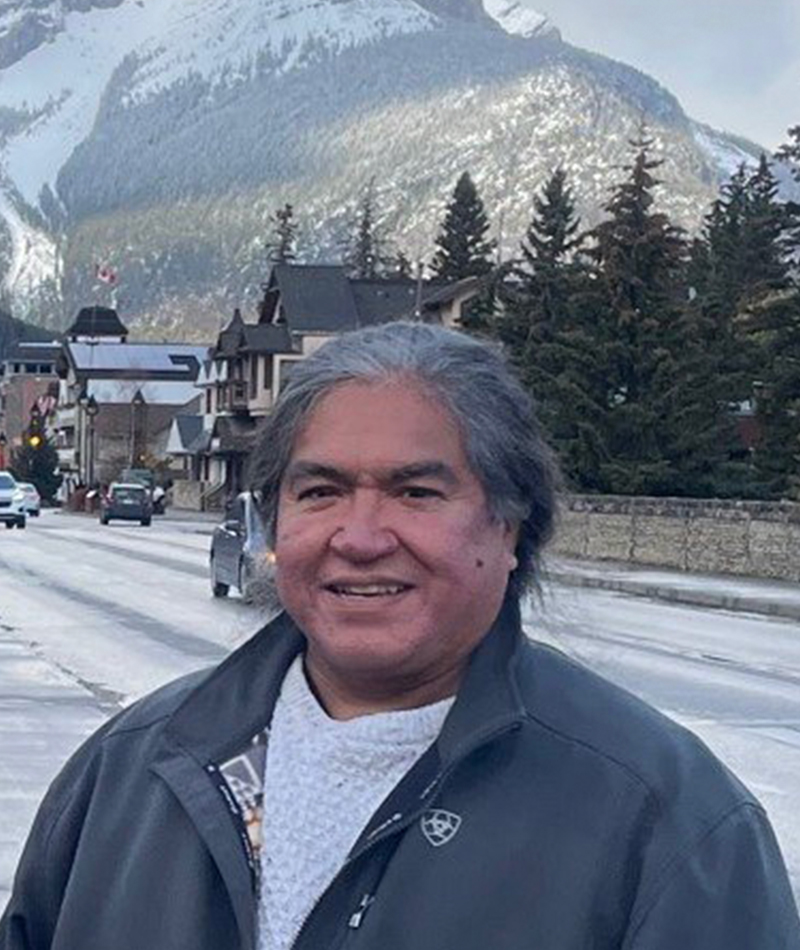
Joe Gilchrist
Joe Gilchrist lives in Skeetchestn, near Kamloops BC, a part of the Secwepmc Nation (Shuswap). He was born in Kelowna and grew up in Ashcroft, Merritt and Kamloops. Joe has lived with fire since an early age, as they did not have electricity or running water in his youth. They used fire all year round to cook, heat and boil water, and to heat the house during winter. They learned safety around fire, how to use fire as a tool, how to maintain a fire and how to use fire outdoors.
Joe began fighting forest fires at the age of 15 and started with the Type 1 all indigenous 20-person sustained action Unit Crew the Merritt Firedevils in 1991. In 1992 he became the Unit Crew Leader in charge of the entire crew and travelled all over BC and Canada fighting forest fires. In 1996 he got on full time with BC Wildfire Service after completing a 16-week in-house government training program called Indigenous Fire Prevention, which was held in the Old residential school in Mission BC The Indigenous Justice Institute.
Currently he works bringing Indigenous Cultural Burning, Traditional land stewardship to the forefront as a Secwepmc Fire Keeper.
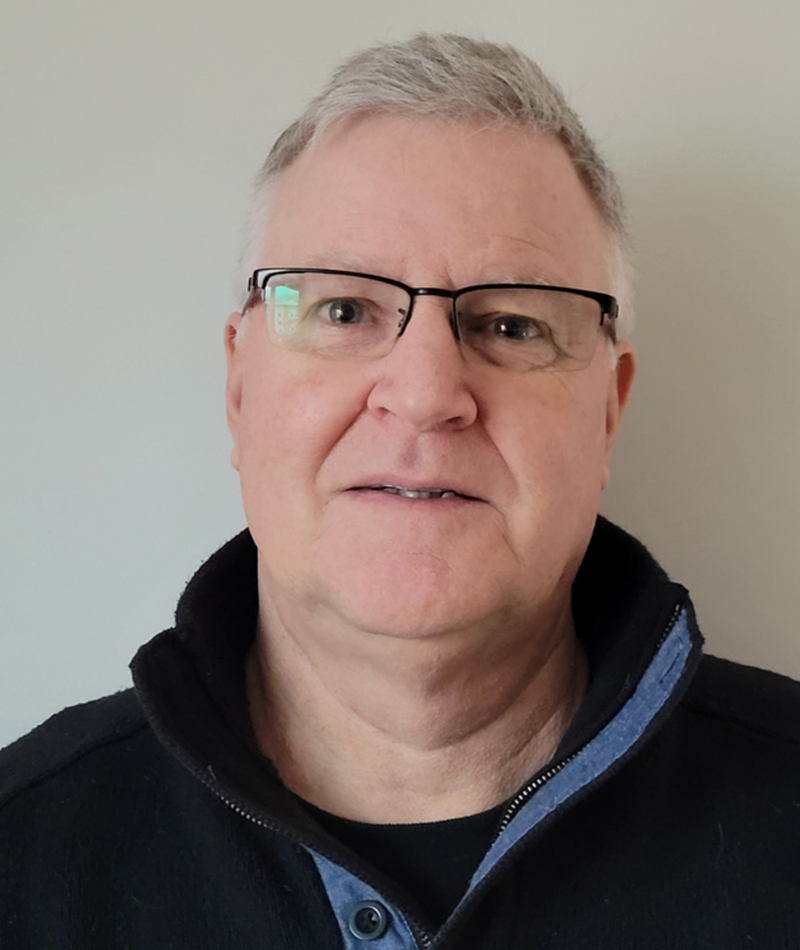
Greg Baxter
Greg will be presenting results of the post-fire study of Enterprise and discussing similarities with two other case studies and even with the Los Angeles fires of January 2025. Greg has worked with FPInnovations since 2001 where he has focused on fuels research, firefighter safety and community protection research. In the past three years, he has created a data collection framework to gather information on fuels and structures before a wildfire reaches them. The goal is to use this data to improve educational tools that teach homeowners how to protect their structures and choose construction methods and materials that reduce wildfire impact in the Wildland-Urban Interface (WUI). Greg has worked with GNWT-ECC at the Fort Providence Wildfire Experimental Burn site to study crown fire and effectiveness of sprinklers to protect structures built to various standards. He has studied the effectiveness of fuel treatments in and around communities that have been impacted by wildfire. Following the damaging WUI wildfires of 2023 in BC and the NT, he has focused on documenting fire behaviour, fuels, and structural damage following a fire.
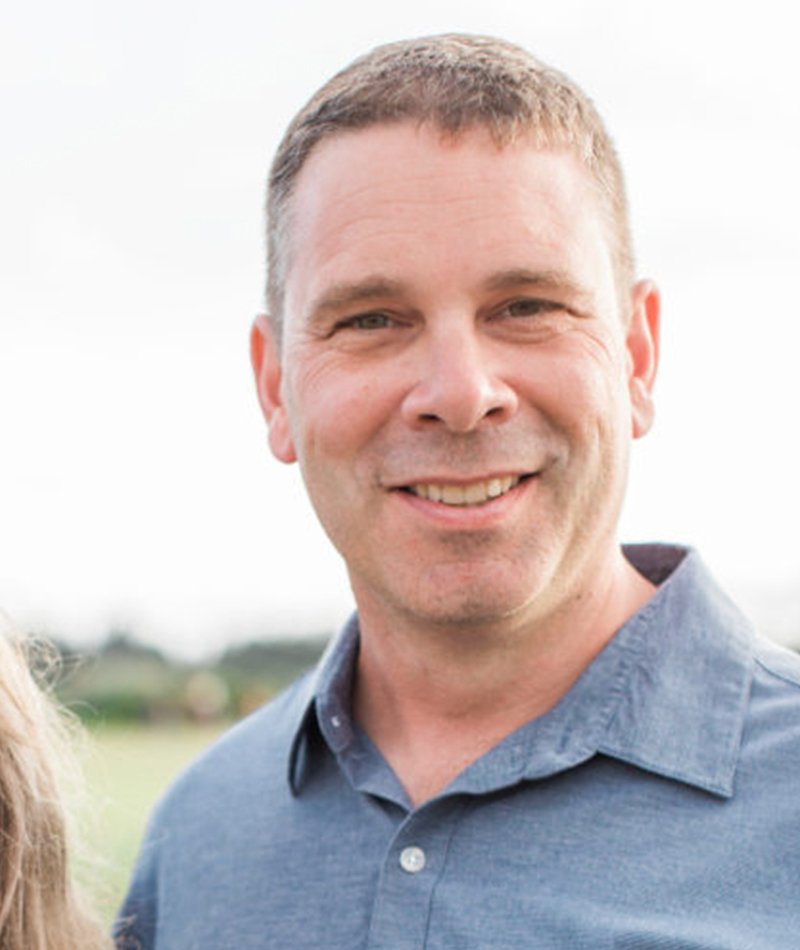
Rodney Schmidt
With over 35 years of Fire Service experience, Rodney is the Fire Chief and Director of Emergency Services for the Town of High Level. Rodney brings over 12 years of expertise in Wildland Urban Interface Operations working as a senior Structure Protection Specialist with the Alberta Wildland Urban Interface Program. He also manages one of 6 dedicated Wildland Urban Interface Teams in Alberta as part of the Program. Rodney has deployed to over 15 incidents in three provinces and territories as a Specialist, Branch Director or Group Supervisor in WUI incidents in the last 12 years including the Chuckegg Creek Wildfire in his own community in 2019 resulting in an evacuation of their community. Rodney is also the president of the Peace Region Fire Chiefs. In his spare time, he enjoys spending time with his wife, two grown daughters and grandson and travelling to new places.

Jennifer Baltzer
Jennifer is a Canada Research Chair in Forests and Global Change and a professor in the Biology Department at Wilfrid Laurier University. Jennifer is a forest ecologist whose work focuses on the drivers of the composition, structure and function of forests from the tropics to the subarctic and responses of these systems to global change. She has an extensive boreal forest field research program throughout the NWT, which focuses on the impacts of climate-driven disturbances including permafrost thaw and wildfire on subarctic ecosystems.
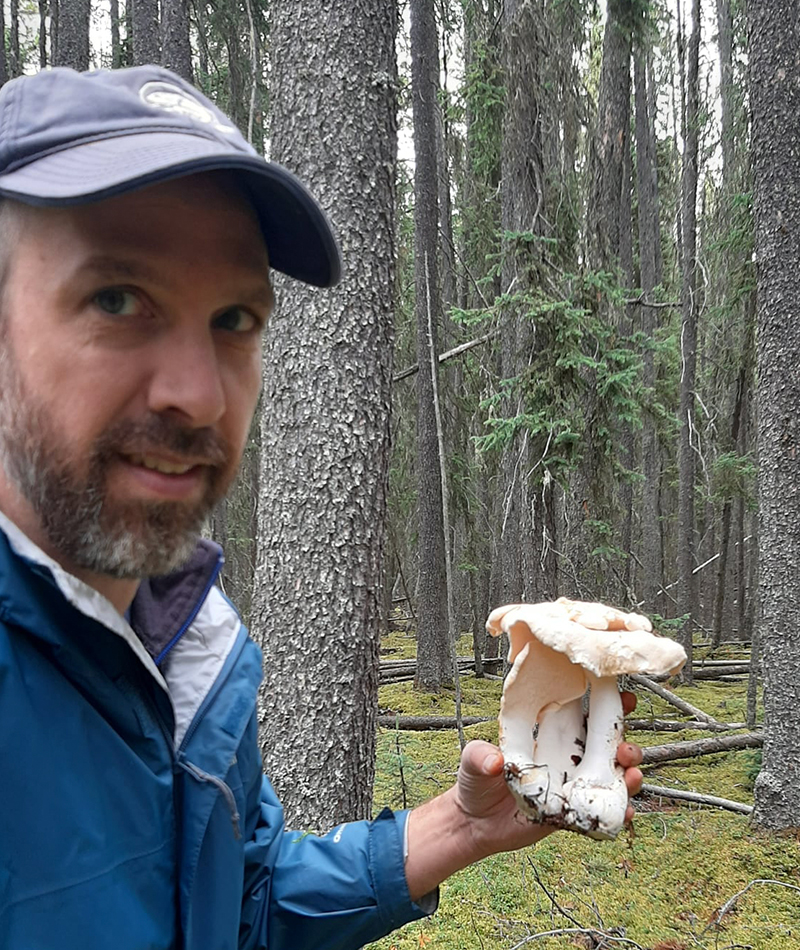
Marc-André Parisien
Marc is a research scientist at the Canadian Forest Service, Northern Forestry Centre, (Edmonton, Alberta) where he has been working with the fire research group since 2000. His research on wildland fire is focused on understanding biophysical controls on fire regimes, mostly within the boreal forests of North America. He specializes in quantitative analysis methods, including process-based simulation modeling, a tool he uses for mapping wildfire risk.

Carla Johnston
Carla Johnston (she/her) is a PhD Candidate at the Balsillie School of International Affairs and 2024–2025 Polar Knowledge Canada Fellow specializing in community-based participatory action research, Indigenous rights, and sustainable food systems governance across local and global scales. She brings nine years of experience in political advocacy, community-led planning, and policy analysis in both the NWT and at the United Nations.
As part of her Polar Fellowship, Carla collaborates with Ka’a’gee Tu First Nation and Sambaa K’e First Nation to explore how fuel break food forests can combine Indigenous land stewardship and sustainable agriculture within wildfire protection strategies. She also contributes to the National Center for Ecological Analysis and Synthesis (NCEAS) Fuel Break Working Group, sharing insights with other Northern communities exploring the co-benefits of this innovative approach.
Carla’s research is grounded in building trust-based relationships and co-creating knowledge with, by, and for Indigenous Peoples. She works through Indigenous research principles that uphold self-determination, center relationships, and foster ethical space and two-eyed seeing.

Ollie Williams
Workshop Master of Ceremonies
Ollie Williams was a senior broadcast journalist for BBC News and broadcaster for BBC Sport before moving to Yellowknife and establishing Cabin Radio, which he co-owns with four friends who are fellow Yellowknifers. Through its four-person newsroom, Cabin Radio provides online and broadcast news coverage of the Northwest Territories alongside entertainment radio. Cabin Radio’s news coverage was relied upon by many NWT residents during the devastating 2023 wildfire season, with the cabinradio.ca website providing round-the-clock updates for a month as thousands of people were forced to leave their homes.

